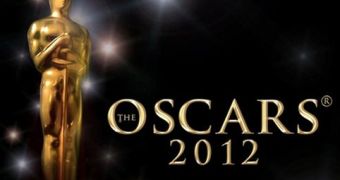Each year, right after or before the Oscars, the Academy of Motion Picture Arts and Sciences is accused of being an elitist, exclusive organization that favors only one type of movies / industry people. The LA Times has an explanation for why that happens: just look at those who vote.
Q Granted, that's easier said than done, since the Academy makes it a point of never speaking about the voting population, made up of over 5,700 members for life.
As it turns out, if you ever watched an Oscarcast and thought to yourself “this is what happens when you let old white men vote,” you were right.
The Academy voting population is mostly white, mostly male and mostly over 60, the LA Times has found after a very thorough investigation.
The question of whether diversity is something that should be sought or encouraged is an entirely different conversation.
“A Los Angeles Times study found that academy voters are markedly less diverse than the moviegoing public, and even more monolithic than many in the film industry may suspect. Oscar voters are nearly 94% Caucasian and 77% male, The Times found,” the aforementioned publication says.
“Blacks are about 2% of the academy, and Latinos are less than 2%. Oscar voters have a median age of 62, the study showed. People younger than 50 constitute just 14% of the membership,” adds the same report.
This would explain why some films, which earn the warmest and most sincere praises from the critics, fail to get a nomination, as it happened with this year's “Shame” or “Drive.” Voters can't relate to the story.
The same overwhelming percentage of white elderly male voters would also explain why, for instance, 2011 was a year when the Black community barely registered with the Academy.
Some members are vocal about the need of the Academy to diversify in such a way as to represent the general population, the LA Times underlines.
Others, though, believe there is nothing wrong with the current division. If people accuse the Academy that it's elitist, it's because it is: it was never meant to mirror the general population.
“I don't see any reason why the academy should represent the entire American population. That's what the People's Choice Awards are for. We represent the professional filmmakers, and if that doesn't reflect the general population, so be it,” Frank Pierson, former Academy president, who won an Oscar in 1976 for the script for “Dog Day Afternoon” says.
Members like Denzel Washington strongly disagree: the movie industry and, as such, the Academy, have to change. Diversity should be their goal.

 14 DAY TRIAL //
14 DAY TRIAL //